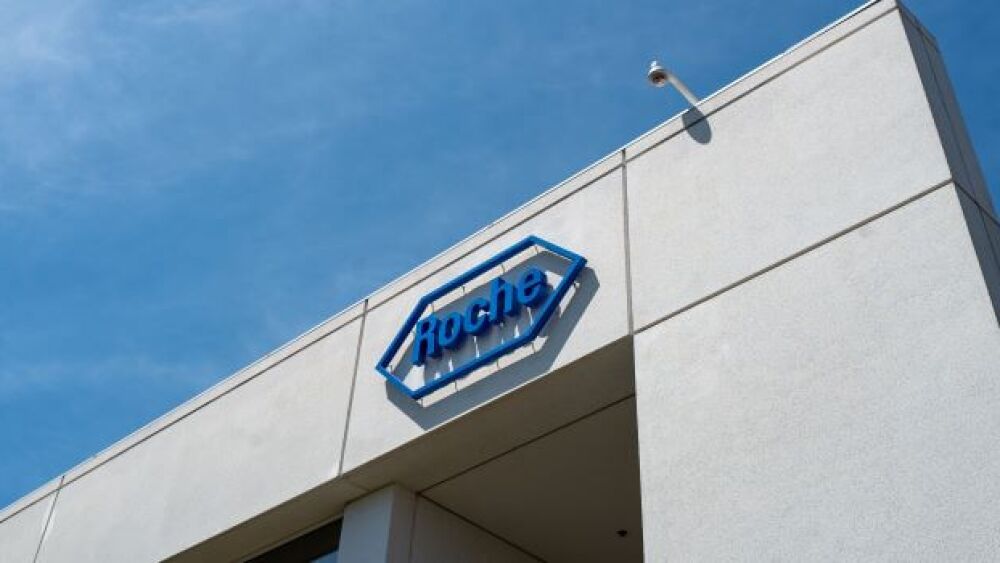Data from a Phase III study show Genentech’s crovalimab is non-inferior to AstraZeneca’s Soliris, the current standard of care in paroxysmal nocturnal hemoglobinuria (PNH).
Smith Collection/Gado/Getty Images
Data from the Phase III COMMODORE 2 study show Roche-subsidiary Genentech’s investigational antibody crovalimab is non-inferior to AstraZeneca’s Soliris (eculizumab), the current standard of care in paroxysmal nocturnal hemoglobinuria (PNH).
Crovalimab met the trial’s co-primary efficacy endpoints of controlling hemolysis and avoiding the need for transfusion. Compared to Soliris, which is given intravenously every two weeks, crovalimab’s once-monthly dosing also demonstrated non-inferior disease control.
Genentech’s PNH hopeful presents an important alternative to patients, enabling “robust disease control” with less frequent infusions, said Levi Garraway, M.D., Ph.D., chief medical officer and head, global product development, Genentech, in a prepared statement.
The company will engage the FDA with these late-stage data and present them at an upcoming medical meeting, Garraway said.
PNH is a rare and potentially fatal blood condition wherein the complement system attacks and destroys red blood cells, a process called hemolysis. This leads to the disease’s signature symptoms of anemia, fatigue, blood clots and kidney complications.
Currently, Soliris is the most widely used drug to treat PNH. It works by binding to and inhibiting the C5 protein in the complement system, thereby interrupting the complement cascade, which would otherwise culminate in hemolysis.
Like Soliris, crovalimab is a C5 inhibitor that seeks to address PNH by disrupting the complement cascade and preventing hemolysis. However, crovalimab seeks out a novel binding site on C5, which makes the investigational monoclonal antibody a potential option for patients who do not respond to currently available treatments.
Moreover, Genentech’s candidate can also be recycled back into the bloodstream, allowing for sustained inhibition of the complement system. This recycling action also enables low-dose subcutaneous administration every four weeks.
Genentech is studying crovalimab in the COMMODORE 1 and COMMODORE 2 studies for PNH. The candidate is also being trialed in atypical hemolytic uremic syndrome, sickle cell disease and other conditions involving the complement system.
A Highly Competitive Space
Though Genentech is making strides in PNH, AstraZeneca continues to be the leader in the field. Aside from Soliris, the company also owns Ultomiris (ravulizumab-cwvz), another C5 inhibitor for PNH.
Further strengthening its PNH leadership, AstraZeneca posted a late-stage win in September 2022 when danicopan met its primary endpoint in the Phase III ALPHA study. Danicopan is an investigational oral inhibitor of factor D and is designed to be an add-on therapy to Ultomiris or Soliris.
Danicopan, Ultomiris and Soliris were developed by rare disease player Alexion, which AstraZeneca bought in 2020.
Joining AstraZeneca and Genentech is Novartis, which in October 2022 reported that iptacopan outperformed Ultomiris and Soliris in the Phase III APPLY-PNH trial.
Unlike AstraZeneca and Genentech, Novartis is targeting factor B of the alternative complement pathway. In December 2022, iptacopan notched a second Phase III win in PNH.






